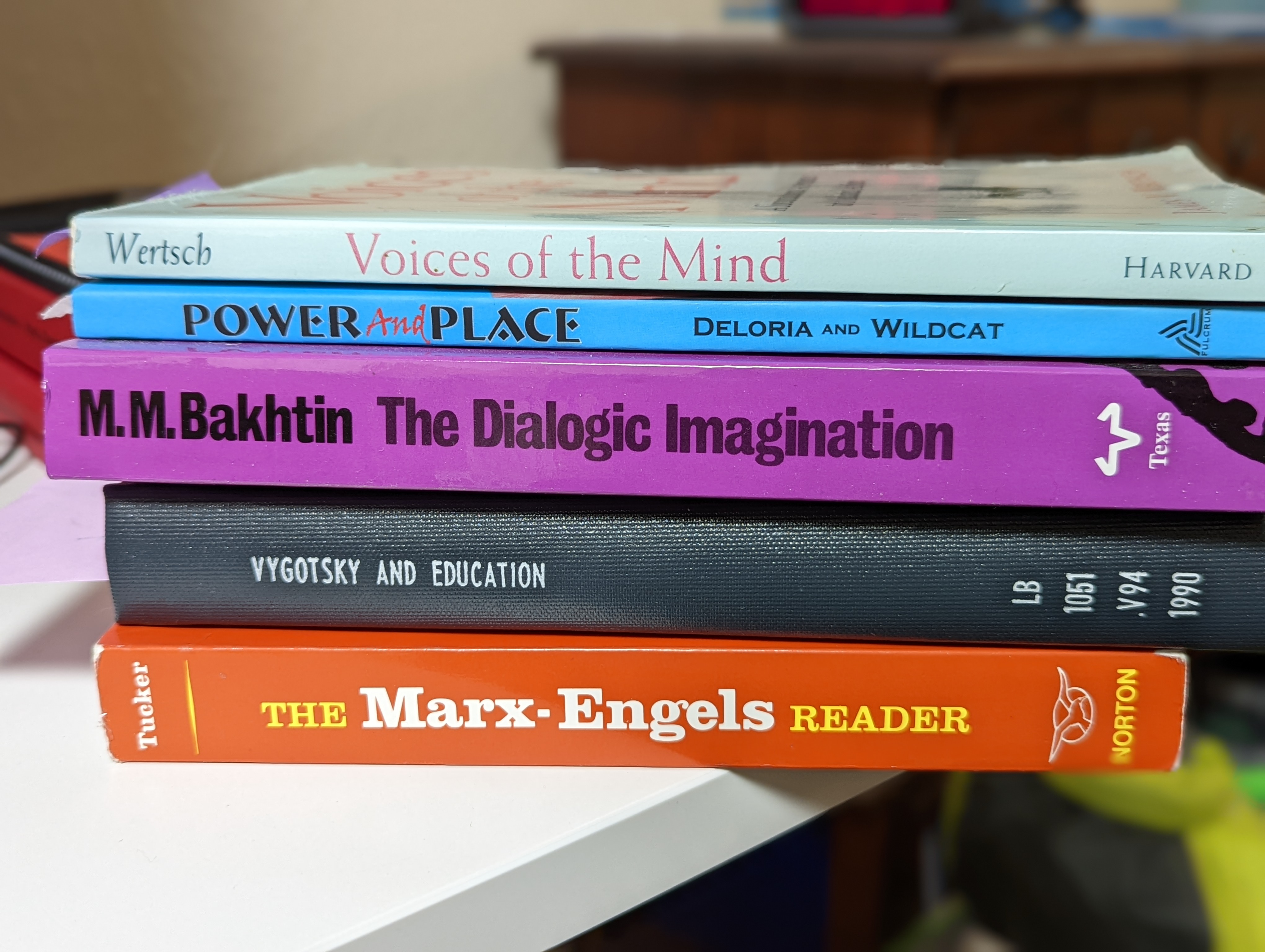We know a lot about teaching and learning. Years of research have led to an enormous extant body of literature. And in Discipline Based Education Research (DBER), just like in basic science, we have some strong Theories to frame and guide our work. And yes, that’s meant to be a “big T Theory”- one that is explanatory and powerful, as opposed to a “small t theory” (as in “I’ve got a theory about that…”). Theory is certainly important when we are engaging in hypothetico-deductive reasoning, but even with more grounded approaches I would argue that Theory is or could be at work, often just not as explicitly. A strong theoretical framing can help to relate your work to the extant body of literature, can guide your data collection and interpretation, and can help make sense of discussing your results and implications.
So where does one start with learning about Theories of learning, teaching, organization, etc.? And how does one learn to actually use Theory? By reading a lot. Learning about Theories and becoming comfortable using them takes time. Most of the Theoretical frameworks that I have used are continuously evolving in my mind and in my practice, based on a deepening understanding, re-reading the primary literature, and trying (and often failing) to use them.
![]() A great way to start this journey is to find a paper that uses a Theory (preferably one that resonates with you) and go down their rabbit hole. Read some of the work they cite in their framing and see where it leads. Bring your ideas to colleagues and talk about it with them. Read more. And try to write about it.
A great way to start this journey is to find a paper that uses a Theory (preferably one that resonates with you) and go down their rabbit hole. Read some of the work they cite in their framing and see where it leads. Bring your ideas to colleagues and talk about it with them. Read more. And try to write about it.
If you need a place to start, here is a paper from our group (Huvard et al, 2020) that makes explicit use of Theory (in this case, Cultural Historical Activity Theory) in framing and interpreting a phenomenon. See what you think and ask yourself the following questions as you read it:
- Does the Theory “do useful work”?
- Does it make sense?
- Could there be a different framing for this phenomenon and research?
- Are you interested to learn more about this Theory?
Good luck on your Theory journey! Read, read more, and talk with your friends and colleagues. It’s a fun and useful endeavor!
Huvard, H., Talbot, R. M., Mason, H., Thompson, A. N., Ferrara, M., & Wee, B. (2020). Science identity and metacognitive development in undergraduate mentor-teachers. International Journal of STEM Education, 7(1), 31.
